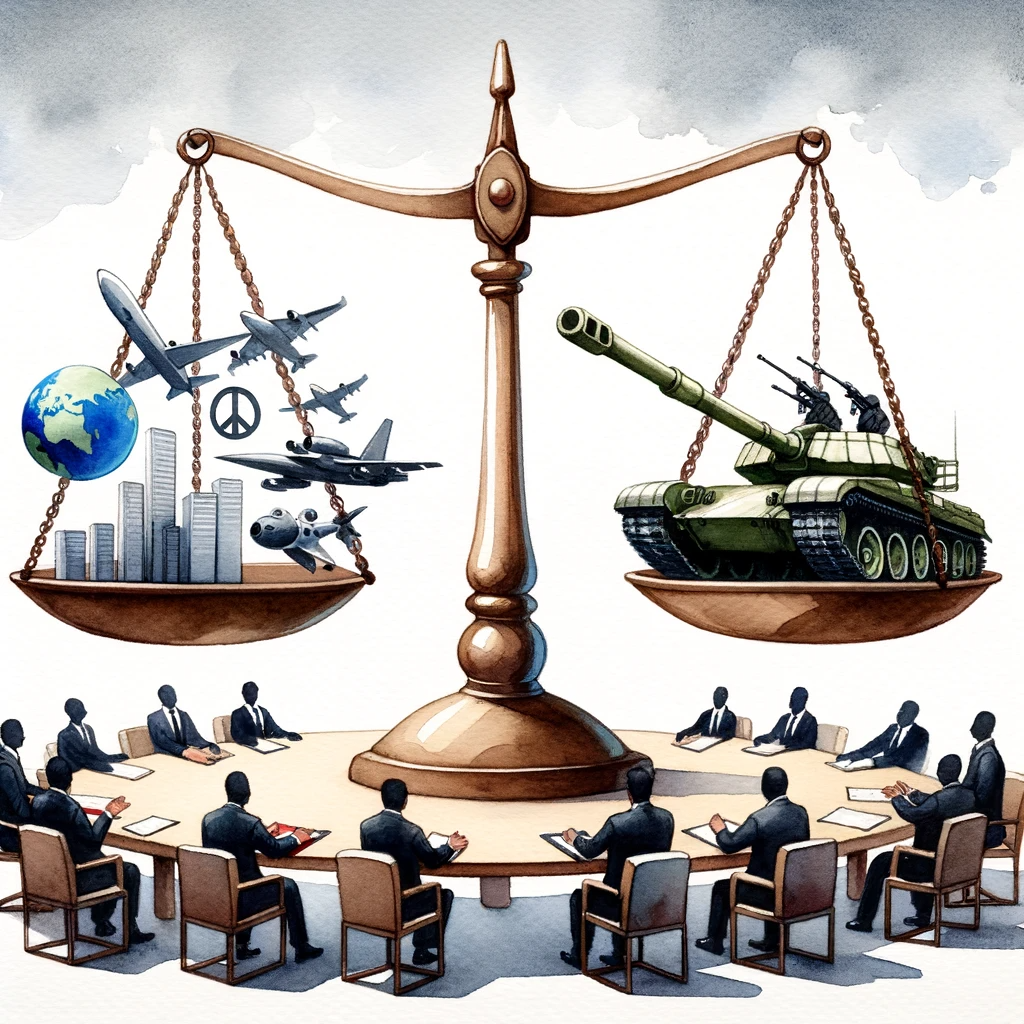Digital Zeitgeist – Global Stability on the Brink: JP Morgan’s Dimon Predicts Imminent Geo-political Chaos
As world powers collide and conflicts rage, esteemed financial experts and corporate leaders are voicing alarm. The most recent to join the chorus is none other than Jamie Dimon, chief executive of JP Morgan Chase, America’s largest banking institution. His stark warning outlines the harrowing prospect that the world might be teetering on the most perilous point in recent history, potentially leading to profound global economic and financial consequences.
A Dire Prognosis from the Financial World’s Titan
In the wake of JP Morgan’s impressive quarterly earnings report, with a profit surge of 35% to a striking $13bn (£10.7bn), Dimon eschewed celebrations in favour of a grave caution. He highlighted burgeoning geo-political tensions, specifically referencing the escalating wars in Ukraine and Israel, and their probable significant impacts on global stability and economic vitality.
Thousands have tragically perished in the Israeli-Gaza conflict following an intensified assault by Hamas, a Palestinian militant group. Concurrently, the turmoil in Ukraine adds a palpable tension to the already strained international relations.
“This may be the most dangerous time the world has seen in decades,” Dimon was quoted as saying, an assertion that sends ripples through the global economic and political landscape.
Precarious Global Equilibrium: Energy, Food, and Trade at Risk
Dimon’s cautionary tale doesn’t end with mere conflict. The JP Morgan chief elaborated on potential widespread disruptions, most notably in energy and food markets. The fragility of these essential sectors stands amid the backdrop of surging inflation and prospective interest rate hikes, painting a dystopian economic scenario.
Given the intricacies of global trade and the interdependence of modern economies, strife in these regions isn’t merely a local calamity. The ramifications could swiftly cascade through the intricate network of global commerce, potentially triggering supply chain disruptions, price spikes in fundamental commodities, and even recessions in the most dire of forecasts.
Echoes of Concern Among Financial Behemoths
The sentiments weren’t exclusive to JP Morgan. Similar echoes of concern were discernible in Citigroup’s recent investor interactions. Mark Mason, Citigroup’s CFO, alluded to the pervasive uncertainties shaping the economic outlook, underscoring the complexities of the current geopolitical quagmire.
It’s evident that the financial world’s upper echelons are bracing for potential turbulence. This collective apprehension from institutions that form the bedrock of global finance signals that we are indeed navigating through economic straits fraught with unpredictability.
The Political Stance and Humanitarian Perspective
Known for not mincing his words on political issues, Dimon’s condemnation of the attacks by Hamas was unequivocal. His solidarity with Israel was clear, reflecting his stance against “terrorism and hatred” in what he terms our “civilized world.”
Beyond the corporate façade, there’s a distinctly human element to Dimon’s statements. The despair over the loss of life and the broader humanitarian crisis unfurling in real-time is unmistakable. It’s a reminder that, at its core, the unfolding geopolitical drama is a human tragedy with far-reaching implications.
Ripple Effects: The Financial World Braces for Impact
Dimon’s foresight or foreboding, depending on one’s perspective, extends to the preparedness of his firm. He emphasised the strategy of readying JP Morgan Chase for a spectrum of outcomes, underscoring the unpredictable nature of the current global predicament.
The conflict’s ripple effects, as Dimon cautioned, are anticipated to extend well beyond the immediate regions. The interconnectedness of today’s globalised economy means that isolation is a relic of the past. Financial markets, trade routes, and national economies are all interlinked, often in ways that are underestimated until crisis strikes.
Conclusion: Navigating Uncharted Waters
The stark warning from a titan of global finance like Jamie Dimon serves as a clarion call to world leaders, businesses, and individuals alike. The intertwining of geopolitical conflict with economic stability has never been more apparent. The wars in Ukraine and Israel are not just regional crises; they are global economic threats that could potentially unhinge the delicate balance of international trade, finance, and geopolitical relations.
The potential fallout could be multi-fold. Expectations include disrupted energy supplies leading to increased costs globally, skyrocketing food prices exacerbating humanitarian crises, and destabilised trade affecting economies at every level, from superpowers to emerging markets.
In this era of unprecedented uncertainty, foresight and preparedness are invaluable. Stakeholders at every level must heed these warnings, preparing contingencies for economic disruption while fervently hoping for diplomatic resolutions to these conflicts. The future of global economic stability might very well depend on the decisions made in this critical period.
Disclaimer: The views and opinions expressed in this article are those of the author and do not necessarily reflect the official policy or position of GPM-Invest or any other organisations mentioned. The information provided is based on contemporary sourced digital content and does not constitute financial or investment advice. Readers are encouraged to conduct further research and analysis before making any investment decisions.

